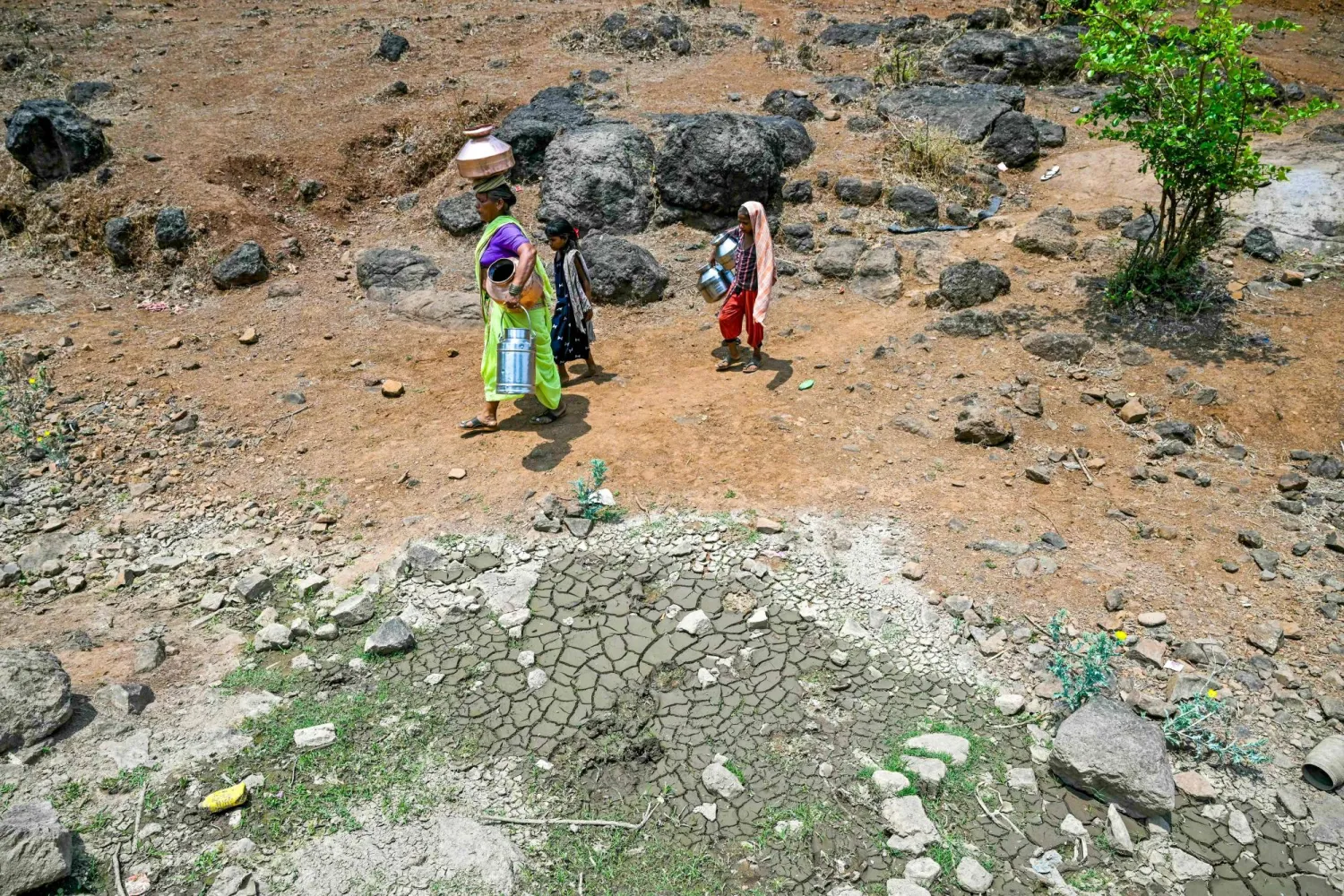India's heatwave is the longest ever to hit the country, the government's top weather expert said Monday as he warned people will face increasingly oppressive temperatures.
Parts of northern India have been gripped by a heatwave since mid-May, with temperatures soaring over 45 degrees Celsius (113 degrees Fahrenheit), said AFP.
"This has been the longest spell because it has been experienced for about 24 days in different parts of the country," the head of India's Meteorological Department (IMD), Mrutyunjay Mohapatra, said in an interview with the Indian Express daily.
The mercury is expected to fall as the annual monsoon rains move north this month, but Mohapatra cautioned worse will follow.
"Heatwaves will be more frequent, durable and intense, if precautionary or preventive measures are not taken," he said.
India is the world's third-biggest emitter of greenhouse gases but has committed to achieve a net zero emissions economy by 2070 -- two decades after most of the industrialized West.
For now, it is overwhelmingly reliant on coal for power generation.
"Human activities, increasing population, industrialization and transport mechanisms are leading to increased concentration of carbon monoxide, methane and chlorocarbons," Mohapatra said.
"We are endangering not only ourselves, but also our future generations."
Scientific research shows climate change is causing heat waves to become longer, more frequent and more intense.
The latest heatwave has seen temperatures in New Delhi match the capital's previous record high: 49.2C (120.5F) clocked in 2022.
As people sought relief from the scorching temperatures, the electricity grid groaned under a record peak power demand of 8,302 megawatts.
On May 29, an automatic weather station in the Delhi suburb of Mungeshpur recorded a high of 52.9C (127.2F), but the temperature was the result of a faulty sensor.
Elsewhere in Delhi, 17 other city stations hit a maximum of 49C (120.2F) the same day.
"We constituted an expert committee, which observed readings for the next two days and found there were problems with the sensor," Mohapatra said.
While the IMB had raised its concerns about the recording within hours, Mohapatra confirmed for the first time that the sensor was faulty.
"We inspect the AWS (automatic weather stations) every six months," he said.
"But in between a bird or a monkey can disturb it".









